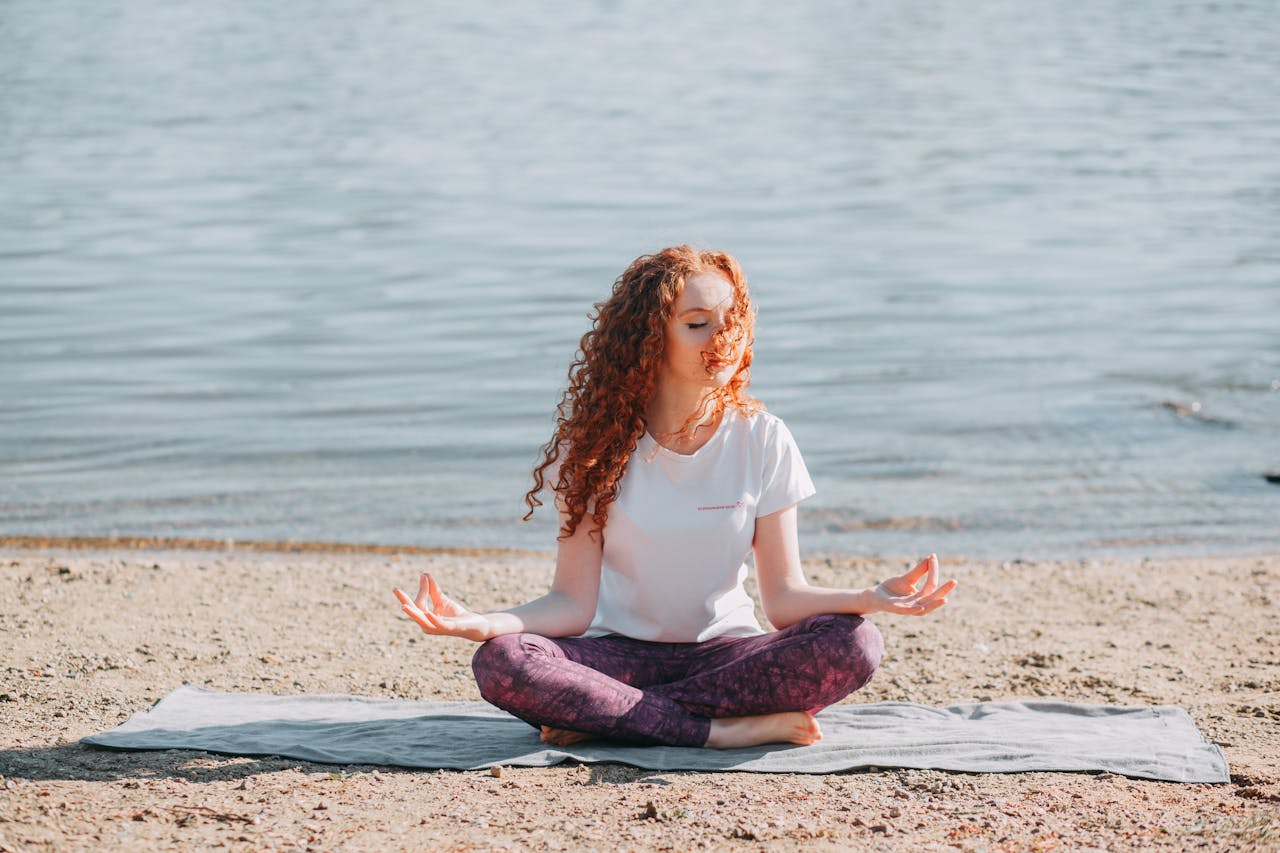There’s something about turning 30 that feels like a wake-up call, isn’t there? I always thought of myself as fairly disciplined, but as I stepped into this new decade, life had a way of showing me that I still had so much to learn. Each lesson shaped my journey in ways I never expected, turning challenges into stepping stones. Today, I want to share ten key self-discipline lessons that have profoundly impacted my life—insights that I wish I’d grasped a bit earlier. If you’re on a similar path, I hope these reflections resonate with you.

1. Discipline Is About Consistency, Not Perfection
In my 20s, I chased perfection like it was a trophy waiting to be won. Setting grand goals and expecting myself to follow through flawlessly was my routine. And when I fell short? The weight of disappointment pressed heavily on my shoulders. But here’s what I’ve learned: self-discipline isn’t about nailing it every single time; it’s about consistently showing up, even when life throws curveballs.
Embracing slip-ups became my turning point. There were days I strayed from my routines, but instead of spiraling into self-doubt, I focused on the simple fact that I showed up again the next day. That mindset shift was liberating. Self-discipline isn’t about never missing a step; it’s about picking yourself back up, time after time. It’s that resilience—the determination to keep moving forward—that builds true discipline.
2. Motivation Is Fleeting—So What Do You Do When It’s Gone?
This was a tough pill to swallow. For the longest time, I waited for the spark of motivation to get things done, believing that if I didn’t feel that rush, I wasn’t ready to act. But let’s face it: life doesn’t wait for motivation to strike. One of the most freeing lessons I learned was that self-discipline often means taking action even when you’re not in the mood.
I can’t count the mornings when I didn’t feel like working out, especially on those cold, dreary days that begged for cozy blankets instead of running shoes. I realized that if I only acted when motivated, I’d rarely make progress. By pushing through those moments and simply doing it anyway, I found that momentum builds from action, not the other way around. Motivation is fleeting, but discipline? That’s the steady heartbeat that keeps you moving forward, regardless of how you feel.
3. Small Wins Are the Foundation of Lasting Change
I used to believe that big, drastic changes were the secret to achieving self-discipline. I’d create elaborate plans, convinced they’d transform my life overnight. But when I couldn’t keep up, I felt defeated. It wasn’t until I started focusing on small, manageable wins that everything began to shift.
I remember starting with just 10 minutes of journaling each morning. At first, it seemed almost too small to matter. But those 10 minutes gradually became a cherished habit that grounded my day. From there, I added another small win—like drinking a glass of water right after waking up. These tiny actions might seem insignificant on their own, but together, they create a ripple effect that leads to bigger changes. Self-discipline isn’t about giant leaps; it’s about those little steps you commit to, day in and day out, that build momentum toward your goals.
4. Your Environment Matters More Than You Think
For years, I underestimated how much my surroundings influenced my self-discipline. I’d set ambitious goals but kept myself surrounded by distractions, wondering why I couldn’t stay on track. It wasn’t until I consciously changed my environment that I realized how much easier discipline could be.
One simple yet powerful change was organizing my workspace. I cleared away the clutter, put my phone out of reach, and filled my space with things that inspired me. It sounds basic, but this shift helped me stay focused for longer stretches. I also learned to be mindful of who I spent my time with. Surrounding myself with people who supported my goals, rather than those who drained my energy, made it so much easier to stay disciplined. Our environment can either set us up for success or tempt us to stray—so choose wisely and create a space that nurtures your aspirations.
5. Self-Discipline Is an Act of Self-Love
This lesson hit me hard. For years, I viewed self-discipline as a harsh taskmaster—something that demanded sacrifices and denied pleasure. But as I matured, I realized that true discipline isn’t about punishing yourself; it’s about caring for yourself enough to make choices that foster growth and happiness.
When I chose to wake up early to pursue my passions, I wasn’t just being disciplined; I was honoring my dreams. Opting to say no to distractions that didn’t serve me was a way of protecting my peace. Understanding that self-discipline is a profound way to show up for myself—that it’s an expression of self-love—has been transformative. Once I started viewing discipline as an act of kindness toward myself, everything felt more aligned and fulfilling.

6. Rest Is Just as Important as Hustle
I once believed that self-discipline meant pushing myself to the limit, and tirelessly working without a break. However, the experience taught me that this approach leads to burnout. True discipline includes knowing when to rest and recharge. It’s about permitting yourself to pause, recognizing that you’ll be more effective when you allow moments of respite.
Establishing a “no work” rule on Sundays was a game-changer for me. No emails, no projects—just pure relaxation. And you know what? I came back each week feeling rejuvenated and more productive. Embracing rest is not a weakness; it’s an essential part of sustaining self-discipline.
7. Patience is a Skill You Need to Master
I’m not naturally the most patient person. Instant results were my mantra. I wanted to see immediate progress, but life doesn’t work that way—neither does self-discipline. It requires patience, a commitment to allowing growth to unfold at its own pace, and an understanding that change doesn’t happen overnight.
Celebrating progress, no matter how small, has become a crucial part of my journey. This newfound patience allows me to stay consistent, even when results aren’t immediate. Each step forward is a testament to my commitment, and that’s something worth honoring.
8. You Can’t Control Everything—So What Now?
One of the hardest lessons I learned was accepting that no matter how disciplined I strive to be, there will always be factors beyond my control. It’s easy to feel defeated when things don’t go as planned. However, learning to let go and adapt has become a significant aspect of my self-discipline journey.
I’ve learned to focus on what I can control—my actions, my responses, and my mindset. This shift in perspective has made a world of difference in maintaining my discipline. It’s about adapting to life’s unpredictability while keeping my eyes on my goals.
9. The Power of Saying ‘No’
For years, I was a chronic people-pleaser, always saying “yes” even when I knew it would stretch me too thin. But self-discipline means setting boundaries and being okay with saying “no” to things that don’t align with your goals.
It was challenging at first, but once I started prioritizing my time and energy, I felt a newfound sense of control over my life. That sense of control has strengthened my self-discipline. Saying “no” isn’t selfish; it’s necessary for creating space for what truly matters.
10. Celebrate Your Progress, No Matter How Small
I used to wait for the big milestones to celebrate, but I’ve learned that every step forward deserves recognition. Celebrating progress, no matter how small, builds momentum and keeps you motivated.
Now, I make it a point to acknowledge even the tiniest victories—whether it’s sticking to my routine for a day, resisting temptation, or completing a small task. These celebrations remind me that I’m on the right path and inspire me to keep going.
Final Thoughts: Embrace Your Journey
Self-discipline is an ongoing journey—one that isn’t always easy but is incredibly rewarding. These ten lessons have transformed how I approach my goals, habits, and everyday life. They’ve taught me that discipline isn’t about perfection or rigidity; it’s about being kind to myself, staying consistent, and creating an environment that helps me thrive. If there’s one thing I’ve learned in my 30s, it’s that self-discipline isn’t just about what you do; it’s about who you’re becoming. And that’s a journey worth taking.




